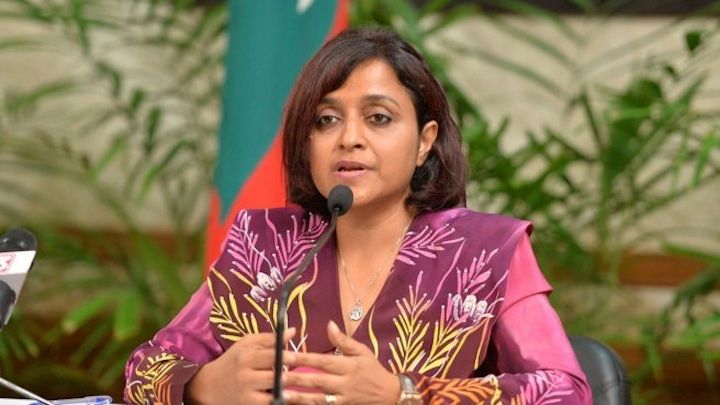Government dismisses international concern over Nasheed’s re-imprisonment
“We do not accept the statements by these countries, nothing that contravenes the Maldivian Constitution and laws have occurred,” said Foreign Minister Dunya Maumoon.

26 Aug 2015, 09:00
The Maldivian government has dismissed renewed international calls for former President Mohamed Nasheed’s release.
“We do not accept the statements by these countries, nothing that contravenes the Maldivian Constitution and laws have occurred,” said Foreign Minister Dunya Maumoon.
Nasheed was taken back to a high security prison on Maafushi Island on Sunday, eight weeks after the government commuted his 13-year jail term to house arrest. The government now denies authorizing the transfer.
David Cameron, the British prime minister, Zeid Ra’d al-Hussein, the UN high commissioner for human rights and the US government once again urged the Maldives to release Nasheed.
Become a member
Get full access to our archive and personalise your experience.
Already a member?
Discussion
No comments yet. Be the first to share your thoughts!
No comments yet. Be the first to join the conversation!
Join the Conversation
Sign in to share your thoughts under an alias and take part in the discussion. Independent journalism thrives on open, respectful debate — your voice matters.




